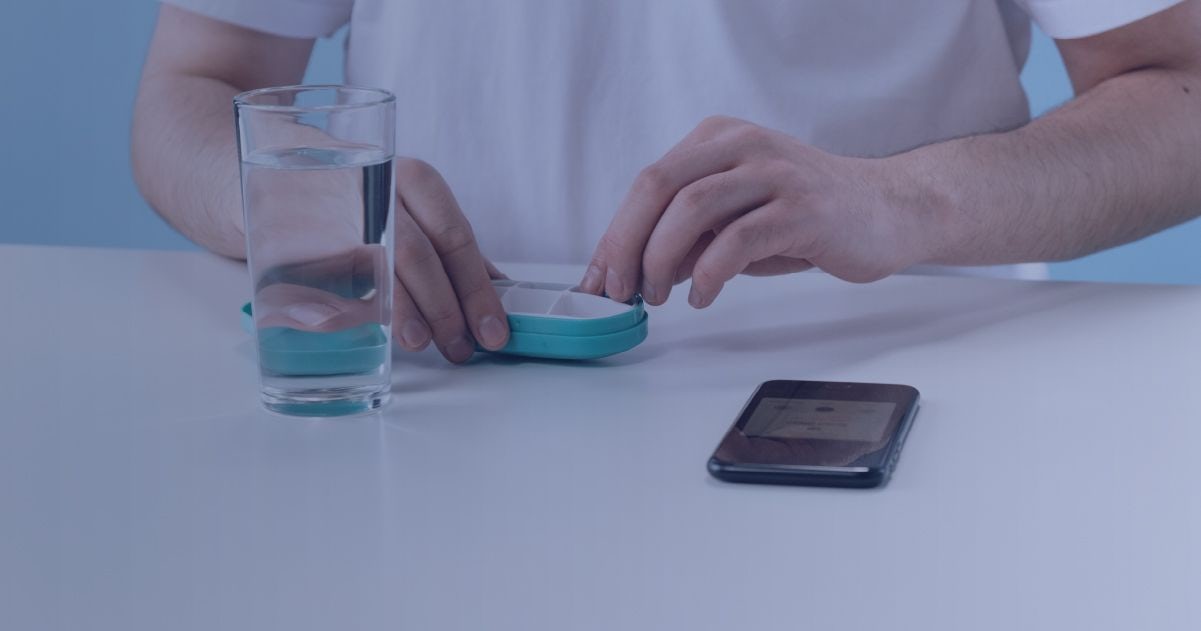We live in a digital age where an increasing number of consumers rely on mobile apps to buy products and use services. Mobile app development services have expanded so much to enable the growth of the mobile scene.
Practically every industry out there is now looking into the potential of mobile applications for delivering better services. The healthcare sector is no exception.
Today, healthcare providers are building applications that deliver telemedicine services and provide customers with many other functionalities on the go. If you're looking to build a healthcare app, you should be aware of the most important trends that will shape this sector in the near future. Read this article to see what paths mobile healthcare app development will take in the near future.
8 trends in mobile healthcare apps development
- Apps for communication between patients and providers
- Educational applications
- Apps for the Internet of Things (IoT) and wearable devices
- Artificial intelligence (AI) based apps
- Advanced reminder apps
- Healthy lifestyle apps
- Decision-making applications to support doctors
- Urgent care applications
Communication between patients and providers
The majority of consumers now use mobile devices that make it possible to deliver new types of products and services, not just information. In the future, we're going to see more apps than ever built to streamline the interactions between doctors and patients.
Telemedicine is going to become a strong trend in our technological landscape, bringing forward a number of exciting applications that allow delivering care to patients remotely. Such apps will not only monitor the health of patients but also allow them to connect with doctors, discuss their medical problems, and get electronic prescriptions easily.
Other apps, such as chatbots powered by artificial intelligence, will allow users to check their symptoms and, on that basis, schedule appointments, set reminders for them, store their medical records, and get follow-up instructions from doctors. All of these features will be available in a simple app located on a mobile device.
Educational applications
While healthcare apps are promising to bring lots of value to patients, doctors stand to benefit from them as well. There are already some medical apps on the market that serve purposes such as research and education. Doctors can now take advantage of apps that store and present critical information on anatomic anatomy or terminology. They are dedicated to professionals in the healthcare industry who are looking for educational tools to expand their skill sets.
A different category of educational apps that are going to blossom in the future is apps that help in research. Specifically, these apps will be designed to extract insightful content from medical journals and other literature. They will help doctors to learn more about new technologies and research findings much faster than the traditional way (by reading articles).
As societies begin to invest more in healthcare systems, professionals in the sector are going to become a significant audience for these new types of applications.
Apps for the Internet of Things (IoT) and wearable devices
Wearable devices are becoming increasingly popular, and many patients have nothing against wearing such devices at all times.
In the future, the healthcare industry will expand the range of possible devices for monitoring the health of patients and assisting them whenever necessary. The Internet of Things is going to play a critical role in the future of mobile app development by bringing different device data together and connecting doctors to their patients in new ways.
Such smart devices can monitor for different aspects of the patient's health in real-time. It's not only tracking steps or the heart rate – these new apps analyze data and detect potential disease risk by finding patterns in the medical history and real-time data.
Artificial intelligence (AI) based apps
AI has transformed practically every sector touched by technology. Healthcare will become part of the AI revolution as well, in particular the mobile developments in the sector. AI has already proven to be a key technology for innovative mobile apps, but it's going to grow only more sophisticated and important.
For example, mobile applications such as the AI-powered chatbot Ada are going to grow in popularity as healthcare providers turn to telemedicine. Such chatbots and AI-enabled symptom checkers will make medical knowledge more accessible to patients, allowing them to understand more about their diseases and turn them to the right care provider. All it takes is asking a question, and the app will understand natural language and respond with links to resources, doctors' appointments, or other functionalities.
Advanced reminder apps
We have already seen mobile applications that work like regular reminders to take medication. They have shown a lot of promise, and healthcare providers are bound to continue looking into these new functionalities. This not only helps to keep patients healthy but also reduces the costs of care at hospitals where forgetful patients might end up when not following their medication regime.
For example, the healthcare apps of the future will include push notifications to notify patients about necessary refills, automatic integration with e-prescription systems, or even the ability to recognize a pill by scanning or uploading images. This will help patients who have difficulty reading instructions or have lost them, ensuring that they receive the right dose of medication.
Healthy lifestyle apps
Prevention is going to be a key focus of healthcare systems all over the world. By encouraging citizens to care about their health, governments can reduce the costs associated with treating chronic diseases that result from bad lifestyle choices (bad diet or lack of exercise). That's why the category of healthy lifestyle apps is only going to grow. Such apps can include modules like fitness, health and nutrition, dieting, and many others. By tracking and monitoring their progress, users can get guidance and take advantage of practical instructions coming from professionals.
Many of these apps will be integrated with various wearable devices to provide an even more comprehensive picture of a patient's health.
Decision-making applications to support doctors
One of the most interesting types of mobile applications in the medical sector is one that supports the decision-making process of doctors. Such applications are going to gain more ground among healthcare professionals.
This type of application can quickly access the required data and deliver an accurate analysis of it to help doctors make an informed decision without extensive research. Moreover, such apps can gather data from medical calculators, diagnostic tools, clinical tests, medical exams, and treatment guidelines. As a result, specialists will get advanced solutions for making important decisions right in their mobile devices. Such applications are going to reduce the number of medical errors and improve the overall healthcare ecosystem.
Urgent care applications
In the future, we are going to see more healthcare providers and governments investing in urgent care apps. Such applications come in handy in various types of emergencies. Urgent care apps offer critical information such as the location of the nearest hospital or pharmacy, the available doctors, estimated time of arrival, and directions to get there.
Some of these apps can be connected to internal hospital systems and indicate how long it would take to wait before receiving care. That way, patients who need urgent care could choose the most convenient solution for solving their problem.
The future of healthcare lies in mobile capabilities
Mobile applications are going to become a fixed point in the technological landscape in the healthcare industry. And healthcare providers, doctors, and patients embrace the opportunities provided by mobile apps, we're going to see the sector expand in new, exciting directions.
Browse our blog if you'd like to learn more about how the healthcare industry takes advantage of innovative technologies. And if your healthcare company would like to join the tech revolution and become a part of the change, don’t hesitate to contact us and talk about how we can help you with your healthtech project.

